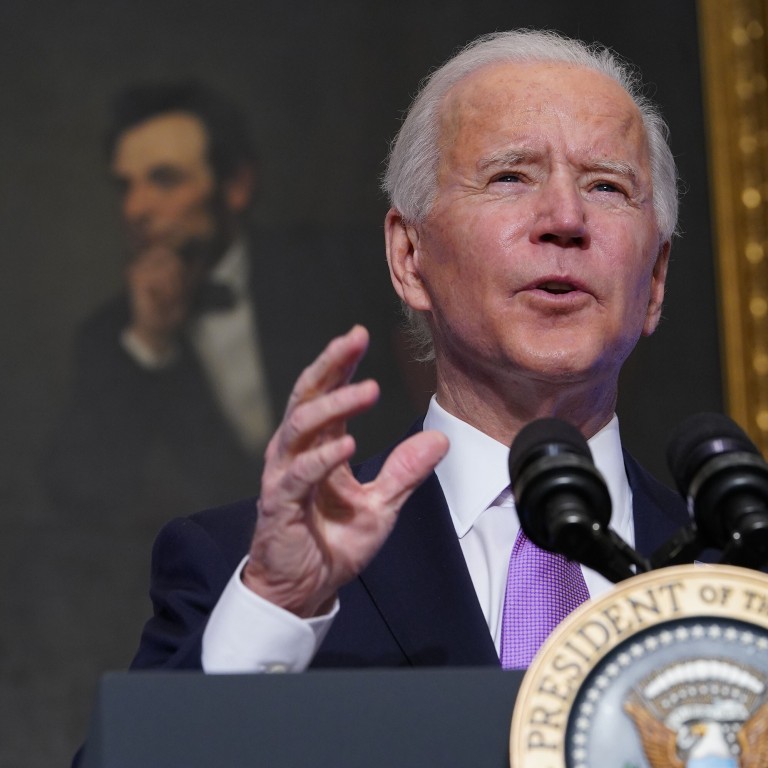
Biden extends US commitment to Nato, with both to work on security concerns for stronger Western alliance
- Nato account of phone call with US president says discussion covered ‘the rise of China’ but White House readout makes no mention of China
- Defence ministers of US and Australia also spoke on Tuesday, with America seeking to maintain a ‘free and open Indo-Pacific’
Stoltenberg, who has invited Biden to Brussels for a Nato summit on an unconfirmed date this year, said the two had stressed the need to “maintain the momentum for increased defence spending to keep our nations safe in an unpredictable world”, according to a Nato statement. The Nato readout said the two also addressed “the implications for our security of the rise of China”, a matter which was not mentioned in the White House statement.
But observers have warned that it will be difficult for Biden’s administration to reassure US allies, with lingering concerns that Washington’s security priorities might change yet again the next time a new president assumes office.
Nato has joined US in seeing China as a risk to security, US envoy says
Last year, Trump also announced he would pull back 12,000 American troops from Germany – where the US has maintained a significant security presence since 1945 – although the move has since been halted by bipartisan lawmakers.
Also on Tuesday, US Secretary of Defence Lloyd Austin spoke with his Australian counterpart Linda Reynolds to reaffirm the “enduring strength” of the alliance between the US and Australia and the importance of “maintaining a free and open Indo-Pacific founded on existing international law and norms in a region free of malign behaviour”, the US Department of Defence said in a statement.
Reynolds said in a statement that the two had stressed that the Indo-Pacific was a key focus for their alliance to ensure the region was “secure, prosperous, inclusive and rules-based”.

